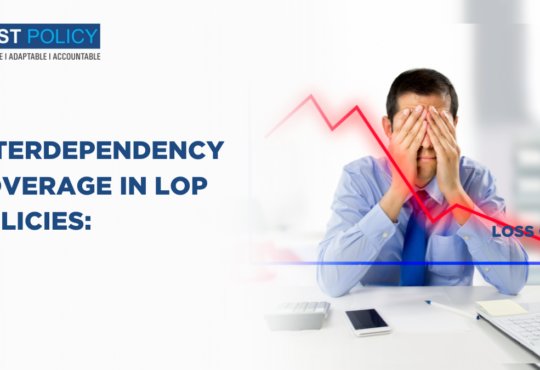
Understanding Insurance Needs in the Health Science Sector: Expert Advice from Insurance Brokers
Did you know that as per Sage Journals Research The healthcare market in India is expected to be valued at ₹8.6 trillion by 2022?
The domain of health sciences is a multifaceted and swiftly developing field that incorporates diverse areas such as medical research, biotechnology, pharmaceuticals, and healthcare services. Given the perpetual progressions in technology along with augmenting regulatory prerequisites, it is imperative for entities functioning in this sector to possess all-encompassing insurance coverage to safeguard their properties, handle liabilities, and alleviate any probable hazards.
It is advisable to seek guidance from insurance brokers who specialize in the health sciences sector if one wants to successfully navigate the complexities of insurance in this field. These experts possess extensive knowledge and expertise in comprehending the distinct risks and challenges of health sciences insurance needs, and can offer customized insurance solutions to address their particular requirements.
Why is Insurance essential in the health science sector?
Insurance is a vital element in the Health Science insurance field, playing diverse significant roles. Primarily, it furnishes economic safeguarding by encompassing feasible losses and accountabilities that may occur from mishaps, litigations, or asset destruction. This guarantees that establishments can recuperate and proceed with their undertakings without encountering substantial financial obstacles. Additionally, insurance assists in reducing the distinctive hazards linked with the sector, such as inaccuracies, product withdrawals, and clinical experimentation accidents. By transmitting these perils to insurers, organizations can concentrate on their principal activities while being assured of peace of mind.
Moreover, insurance plays a key role in the management of reputation by furnishing coverage for unfavorable occurrences like malpractice allegations, cyber attacks or data breaches. It enables enterprises to manage the legal and financial implications of such incidents, thereby reducing harm to their reputation and preserving trust among stakeholders.
Key reasons of having an experienced insurance broker in your health sciences business
1. Risk Analysis and assessment: Insurance brokers initiate their services by performing a comprehensive risk assessment to recognize and assess the possible dangers that a company could encounter. Multiple factors are taken into account such as the business’s characteristics, research or service type provided, adherence to regulatory compliance requirements, and the organization’s financial stability. The outcome of this assessment allows brokers to comprehend the particular risks facing an entity and ascertain the suitable Insurance coverage for health sciences sector.
2. Liability Management: Liability risks are a major concern in the health sciences industry, and as such, it is imperative for organizations to obtain adequate liability coverage. To this end, insurance brokers play a crucial role in educating firms about the different types of liability coverage that exist, such as product liability, general liability and professional liability (commonly known as errors and omissions insurance). Furthermore, these brokers assist businesses in determining the optimal level of protection required to mitigate possible legal action resulting from various issues including research misconduct, product recalls or harm caused to patients.
3. Asset and Property Protection: Insurance brokers are well aware of the fact that institutions belonging in the risk management in health sciences industry domain possess a number of valuable assets, such as research facilities, laboratories, and specialized equipment. Due to this, they suggest procuring appropriate insurance coverage for property protection against risks like theft, fire, natural calamities or equipment damage. They also provide their clients with guidance in evaluating the necessity for business interruption insurance which can offer financial assistance during temporary closures brought about by unforeseen circumstances.
4. Insurance for clinical trials:Numerous entities operating in the realm of health sciences carry out clinical trials as a constituent component of their research and development undertakings. To comprehend the specific hazards that come with such trials and to obtain suitable insurance coverage, insurance brokers extend their assistance. Such coverage may include provisions for unfavorable events, impairments suffered by participants, or non-compliance with regulatory requirements.
5. Data security: Insurance brokers place significant emphasis on cybersecurity and data protection insurance due to the rising dependence on technology and the escalating risk of cyber-attacks. These brokers assist companies in comprehending the possible hazards of data breaches, along with their detrimental financial and reputational aftermaths, as well as the available insurance options to alleviate those risks.
6. Compliance: In the health sciences industry, there exist a multitude of regulations that an organization must adhere to. These regulations consist of privacy laws, clinical trial guidelines, and good laboratory practices. Insurance brokers collaborate closely with these establishments to ascertain compliance with said regulations. Moreover, they ensure that suitable insurance coverage is in place in case of non-compliance incidents.
7. Customized Solutions: Insurance brokers are well-versed in the fact that the insurance requirements of entities operating in the health sciences domain are quite particular. They collaborate with insurers who possess knowledge and proficiency in this field to devise bespoke insurance solutions which tackle the distinct risks that each entity faces. These specialized solutions offer extensive coverage while also taking into account an entity’s financial limitations.
Conclusion
To sum up, insurance brokers hold immense significance in aiding health sciences organizations to comprehend their insurance requisites. Their proficiency in evaluating risks, covering liabilities, safeguarding assets, providing clinical trial coverage, ensuring cybersecurity and adhering to regulations enables firms to navigate the intricate insurance realm with assurance. By collaborating with adept insurance brokers, organizations can guarantee that they possess suitable insurance coverage that safeguards their resources and minimizes risks in this ever-evolving industry.





